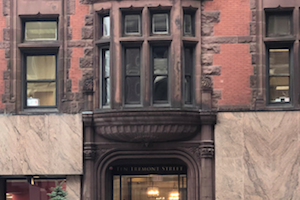For a Free Consultation
Massachusetts G.L.c. 90, § 24 (2)(a): Use Without Authority
Massachusetts General Laws Chapter 90, section 24 governs a wide variety of motor vehicle related criminal offenses. Specifically, under section 24(2)(a) a person may be charged with use without authority, when using a vehicle without permission to do so.
The relevant portion of the statute defines this offense as follows:
“whoever uses a motor vehicle without authority knowing that such use is unauthorized…”
A conviction of a charge under this section requires that the government prove three essential elements beyond a reasonable doubt:
- First, the government must prove that the defendant used a motor vehicle;
- Second, they must prove that at the time of this use the defendant did not have permission from the owner of the vehicle or some other person legally authorized to grant permission; and
- Finally, they must prove that at the time the defendant knew that he/she did not have permission to use the vehicle.
Essential to the prosecution of a charge under this section is that the defendant must know at the time that he/she was not authorized to use the vehicle. However, use of the vehicle does not necessarily mean operation of the vehicle. An individual may be charged with this offense even if he/she is not driving the vehicle but is merely a passenger in the vehicle when the vehicle is moving.
The charge of use of a motor vehicle without authority is a lesser-included offense of the crime of larceny of a motor vehicle; the difference being that the latter requires that the defendant have the intent to deprive the owner permanently of the vehicle. Use without authority presumes the defendant either returning the vehicle or abandoning it where it will be recovered.
Charges under this section often arise when young people take the cars of their parents or other adult relatives without permission to do so or when an individual uses a car rented by another person without being permitted to do so under the rental agreement.
PenaltiesA person convicted of use of a motor vehicle without authority under this statute may, for a first offense, face a penalty of imprisonment in the house of correction for not less than 30 days nor more then 2 years, or by a fine of not less then $50 nor more then $500, or by both such fine and imprisonment.
A person convicted of subsequent offenses will be subject to harsher penalties.
If convicted of a second offense under this section a person may face imprisonment in state prison for not more then 5 years or in a house of correction for not less than 30 days nor more then 2 ½ years.
If convicted of a third offense, within 5 years of the two prior offenses, a person may be punished by imprisonment in the house of correction for not less than 6 months nor more then 2 ½ years, or by imprisonment in state prison for not less than 2 ½ years nor more then 5 years.
Defenses to Charges of use Without AuthorityExperienced criminal defense attorneys will be able to help you explore all options for defenses to motor vehicle related charges, including a charge of use without authority. One possible defense to such a charge may include challenging the Commonwealth’s ability to prove knowledge; for instance, if you held an honest belief, even if it were mistaken, that you were allowed to use the vehicle in question then this may be a complete defense to such a charge. Particularly, if you were a passenger in the vehicle and were charged with use without authority you may have a very defensible case.
Related Offenses:M.G.L. c. 266 § 28 – Larceny of a motor vehicle
Massachusetts Criminal Defense Lawyer 617-263-6800If you or someone you know has been charged with motor vehicle related crime in Massachusetts, contact the Law Offices of Stephen Neyman, P.C. Attorney Neyman has multiple decades of experience defending those who have been accused of such offenses in Boston and all throughout Massachusetts. He is an aggressive and smart attorney who is relentless in protecting the rights of his clients. You can reach Attorney Neyman by calling 617-263-6800 or by sending him an email. He offers free and confidential initial consultations, which he will schedule at your convenience.
 Law Offices of Stephen Neyman Criminal Lawyers Home
Law Offices of Stephen Neyman Criminal Lawyers Home










